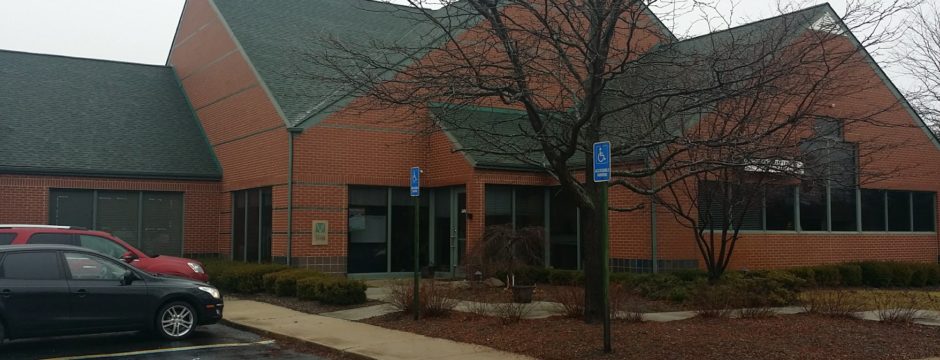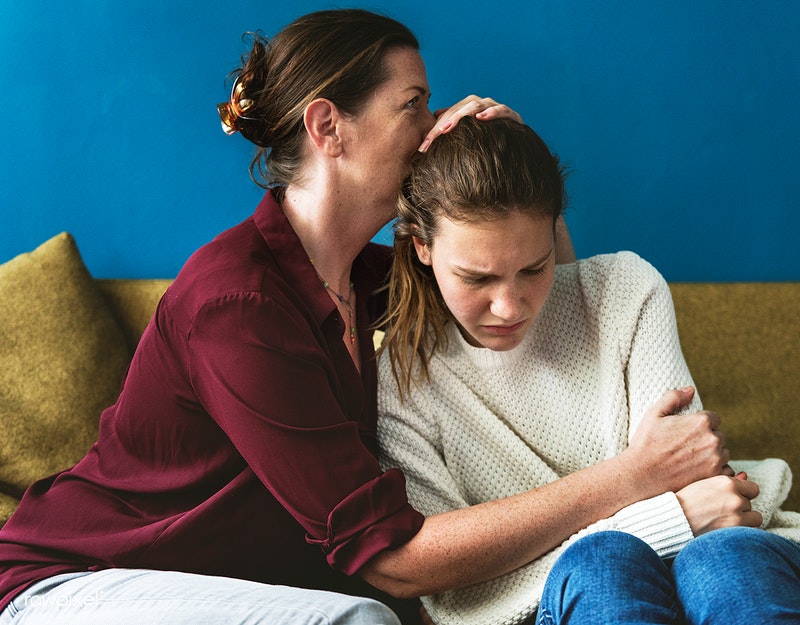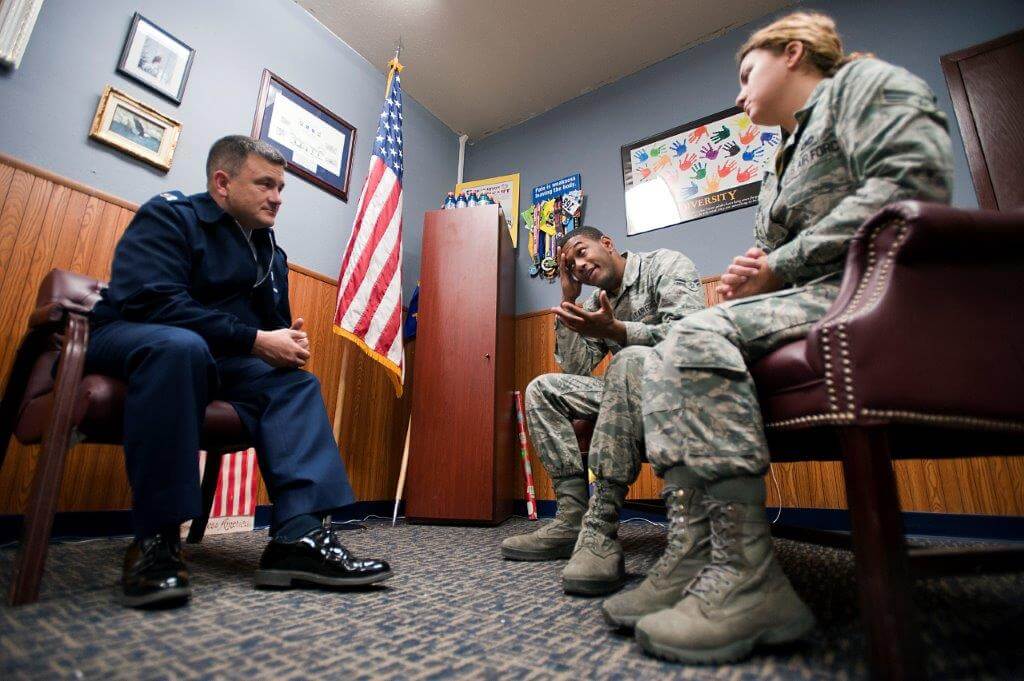The people we interviewed consistently reported on the negative impact that major depressive disorder and generalized anxiety disorder had on their quality of life. While the causes of the participants' disorders varied, participants expressed a similar desperate desire to find effective treatment for their conditions. Owing to the personal and unique nature of each person's experience of a mental health issue, the participants' treatment journeys and the perceived benefits of treatment varied. Participants also differed in their views of the effectiveness of different types of psychotherapy (i.e., CBT, interpersonal therapy, and supportive therapy) and their preference for group versus individual therapy.
However, all participants agreed that ultimately receiving their preferred type of psychotherapy benefited them in dealing with their depression or anxiety. All CBT strategies were associated with ICERs less than $50,000 per QALY gained. CBT provided as group therapy by nonphysicians was associated with the lowest ICER of $3,715 per QALY gained, whereas CBT provided as group therapy by psychiatrists was associated with the highest ICER of $43,443 per QALY gained. The probability of group CBT strategies being cost-effective is over 92% at a willingness-to-pay threshold of $50,000 per QALY, and is over 80% for any CBT strategy at a willingness-to-pay threshold of $100,000 per QALY. Our findings remained robust in all scenario analyses, with group CBT provided by nonphysicians being associated with the lowest ICER estimates (ranging from cost-saving values to $16,763 per QALY when we analyzed only the costs of CBT treatment).
Our results, which are applicable to the context of Ontario's health system, align with the findings of various cost-effectiveness analyses, described within our systematic review of the economic literature. We also estimated the 5-year budget impact of publicly funding structured psychotherapy in Ontario. Finally, we interviewed people with major depressive disorder and/or generalized anxiety disorder to better understand the impact of their condition on their daily lives and their experience with different treatment options, including psychotherapy. Seeking therapy is an act of great courage and Walker believes we all have the capacity to live full and meaningful lives. He wants to hear about your struggles and build on your strengths to help you access and live your best life.
Walker works with clients dealing with anxiety, depression, addiction, mood disorders, personality disorders, relationship issues and codependency. He employs CBT, DBT, mindfulness, psychodynamic and strengths-based therapy. Walker appreciates 12 step, motivational interviewing and smart recovery modalities to help with addiction. He likes to take a holistic approach to therapy and wants to help you heal your mind, body and spirit.
Walker believes strongly in the connection between physical and mental health. He also believes wellness can be achieved with talk therapy as well as physical activity, spiritual awareness and developing a connection with the natural world. He intends to work together to develop coping skills that are individualized for your unique issues and get past the areas where you feel stuck. Walker is a licensed clinical social worker who has over 20 years' experience providing mental health and substance abuse services in both inpatient and outpatient setting. He has provided group, individual and family therapy for adolescents, adults and seniors.
When booking your appointment, please book it using the full name as written on your insurance card. Dr. Benton joined CCA in May 2014 as a clinical psychologist who primarily offers child, individual and family therapy in the Hanover office. Her clinical interests are in providing cognitive behavioral therapy for children with depression, anxiety, medical problems and/or behavioral issues.
In Psychology from the College of William and Mary in 2001, her M.S. In Health Psychology from the University of Sciences in Philadelphia in 2002 and her Psy.D. She completed her postdoctoral fellowship in pediatric psychology at Arkansas Children's Hospital in August 2009. Dr. Benton specializes in working with children with medical problems, specifically, feeding problems, weight management concerns, and sleeping problems. She works with children and their families to improve overall coping methods and compliance with treatment.
Additionally Dr. Benton is interested in treating children with depression or who have behavioral difficulties, providing family therapy with a focus on improving the overall communication within the family, and working to improve parenting skills. Dr. Benton enjoys working with a wide range of patients, age 4-18. Dr. Benton is a licensed clinical psychologist in the state of Virginia. Major depressive disorder and generalized anxiety disorder are among the most commonly diagnosed mental illnesses in Canada; both are associated with a high societal and economic burden. Treatment for major depressive disorder and generalized anxiety disorder consists of pharmacological and psychological interventions. Three commonly used psychological interventions are cognitive behavioural therapy , interpersonal therapy, and supportive therapy.
We also demonstrated the cost-effectiveness of CBT for the management of generalized anxiety disorder and interpersonal therapy for the management of major depressive disorder. These result agree with clinical practice, as CBT is recognized as an effective therapy for generalized anxiety disorder, whereas both CBT and interpersonal therapy are used in the management of major depressive disorder. Therefore, our study is generalizable to the population of patients with major depressive disorder and those with generalized anxiety disorder, with either new or manageable recurrent disease.
However, our evaluation focused only on populations with major depressive disorder and generalized anxiety disorder. Future research to evaluate psychological treatments for complex forms of depression or other disabling mental health disorders is needed. These analyses may be informed and complemented by input from a range of individuals, including patients and clinical experts, and serve as the basis recommendations about whether health care interventions should be publicly funded or not. Our budget impact analysis found that the costs of adopting CBT are high, most likely owing to the large number of people suffering from major depressive disorder and generalized anxiety disorder. Adding CBT to usual care over the next 5 years would cost the province between $68 million and $529 million, depending on the type of treatment (group vs. individual) and type of provider (nonphysician vs. physician).
Our analysis indicates that CBT provided as group therapy by any publicly funded, regulated therapist (i.e., a nonphysician) is the most affordable option for the province. However, individual CBT represents good value for money and should be available to those patients who are not engaging well with or adhering to group therapy. If individual CBT provided by nonphysicians were provided to a maximum of 20% of patients with major depressive disorder, the net budget impact would be about $28 million. Psychotherapy, also called psychological counseling or talk therapy, is a general term for treating depression by talking about depression and related issues with a mental health professional.
Different types of psychotherapy can be effective for depression, such as cognitive behavioral therapy or interpersonal therapy. A native of Richmond, Virginia, Dr. Jenee' Lewis-Walker received a Bachelors Degree from Elizabeth City State University with a double major in Special Education and Psychology. Dr. Walker's clinical experience includes working with children, adolescents, and adults from a variety of ethnic, genders, ages, and socioeconomic backgrounds, providing services such as psychological assessment, psychotherapy, and research design. She has worked in a variety of clinical settings such as mental health clinics, residential treatment facilities, detention centers, and outpatient private practice. Dr. Cruz-Katz is a licensed clinical psychologist who joined the West End office of Commonwealth Counseling Associates in 2017.
He is a graduate of Fordham University where he earned his Ph.D. in Clinical Psychology with a concentration in child and family treatment in 2016. Dr. Cruz-Katz completed his internship through the Hutchings Psychiatric Center of the New York State Office of Mental Health program with rotations in adult, youth, and geriatric inpatient and outpatient units. A former researcher with the Psychiatric Institute of Columbia University, director of an addiction recovery program, and foster care case manager, Dr. Cruz-Katz has over 20 years in the field. Throughout his career, he has focused on improving personal mental health management, lessening the impact of difficulties encountered or troubling experiences, and increasing communication and honesty among individuals. In treatment, Dr. Cruz-Katz focuses on the relationship with the patient to establish a validating, safe, and accepting environment while remaining acutely aware of the uniqueness of the individual and of each situation encountered.
This, in turn, allows for a collaborative approach to treatment and problem-solving directly benefiting outcomes. Dr. Cruz-Katz is a cognitive-behavioral psychologist specializing in third-wave treatments such as Dialectical Behavioral Therapy and Acceptance and Commitment Therapy. However, he is able to dynamically draw on an eclectic range of modalities in order to best meet the need of the patient. Dr. Cruz-Katz has extensive experience in diagnosing and treating anxiety and related disorders (e.g., panic, OCD, ADHD, phobias), depression, trauma/PTSD, and issues related to relationships. Mental health conditions can have a significant impact on the lives of people living with these conditions and their families. To understand the impact of these disorders on the quality of life of those living with them, we spoke with people and families of people with lived experience of these mental health conditions who also had experience with psychotherapy treatment.
Our evidence synthesis found that CBT is the most researched psychological therapy for the management of major depressive disorder and generalized anxiety disorder. At these thresholds, CBT was found to have a greater than 90% likelihood of being cost-effective for people with severe or recurrent major depressive disorder. Online therapy can help you deal with relationship problems, overcome addiction, and better manage stress. Online therapy services can include talk therapy, psychotherapy, cognitive behavioral therapy, and other professionals' approaches in an office setting. You can access online therapy for anxiety, depression, eating disorders, grief support, panic attacks, stress relief, and more.
However, online therapy is not appropriate for crisis and emergencies. Dr. Beth McGraw is a licensed clinical psychologist who joined the West End office of CCA in October of 2012. She is a graduate of James Madison University and the University of South Carolina, where she earned her PhD in Clinical-Community Psychology in 2006. She is a cognitive-behavioral psychologist who places importance on providing effective, empirically supported treatments that fit the individual needs of each patient.
Although she has been trained to work with people of all ages, her primary focus is on working collaboratively with individuals, age 18 and up, to meet mental health goals and reduce distress in their lives. She has experience treating a broad range of mental health diagnoses including mood disorders and anxiety disorders. In addition to her clinical experience, she has received further specialized training in the treatment of Post Traumatic Stress Disorder .
Dr. McGraw's most recent practical clinical experience was in the military mental health setting. I am out-of-network with insurance companies, which means you will be charged the listed out-of-pocket pricing for your session. When you book an appointment, I'll reach out to confirm your information and am looking forward to working with you! ______ Marci is a Licensed Clinical Social Worker with a Master's degree in Social Work from the University of Maryland, Baltimore. Through her practice, she has treated patients with mood disorders, including depression, anxiety and bipolar disorders, the long-term effects of trauma , family systems issues . Marci specializes in helping to heal troubled relationships among children/adolescents, young adults, couples and families.
Marci is familiar with the court system and often testifies on behalf of her patients when warranted. Previously, Marci worked as a clinical supervisor and program therapist for Behavioral Health Partners, a division of Sheppard Pratt, where she provided mental health treatment to children, adolescents and families at high risk. Marci has worked as a clinical specialist with the Foundation School of Montgomery County and as a school social worker for the Fairfax County school system in special education. She has also served as the president of Allied Counseling Group in Frederick, Maryland. Using her 30 years of experience with individuals, couples and families, Marci combines a variety of therapeutic approaches in her private practice.
The objectives of this report were to assess the effectiveness and safety of CBT, interpersonal therapy, and supportive therapy for the treatment of adults with major depressive disorder and/or generalized anxiety disorder. We also assessed the cost-effectiveness of structured psychotherapy and calculated the budget impact of publicly funding structured psychotherapy. We then interviewed people with major depressive disorder and/or generalized anxiety disorder to learn about their experiences of these disorders and with different types of therapy. It is important to recognize that any regulated health professional providing psychotherapy should be certified by a national credentialing body to ensure the quality of therapeutic delivery. Data from professional organizations and our analysis suggest that we may currently have an adequate number of regulated professionals who could potentially provide therapy in the first years of adoption. Therefore, implementation efforts would need to be focused on investments in infrastructure120 and the organization of outpatient psychological treatment care for adults with major depressive disorder and generalized anxiety disorder in Ontario.
This was a recent systematic review, appraised as being of very good methodological quality ; moreover, it examined major depressive disorder recurrence among important clinical outcomes. In December 2016, we sought expert consultation on the use of CBT, interpersonal therapy, and supportive therapy for the treatment of major depressive disorder and generalized anxiety disorder. Members of the consultation included health care professionals in the specialty areas of psychology, psychiatry, and family medicine. The role of the expert advisors was to help contextualize the evidence and provide advice on the use of CBT, interpersonal therapy, and supportive therapy for the treatment of major depressive disorder and generalized anxiety disorder. However, the statements, conclusions, and views expressed in this report do not necessarily represent the views of the consulted experts. Between his undergraduate and graduate education and training he worked for a year with a private research firm investigating the employability of troubled veterans.
His Ph.D. in Clinical Psychology was awarded from the University of Maryland in 1977. Before that he obtained clinical training during two and one-half years of half-time work at VA Hospitals, first in medical psychology, then inpatient psychiatric triage. Upon graduation Dr. Madsen was employed for seven years in the forensic wing of St. Elizabeths Hospital, first as a staff psychologist on post-trial treatment wards and then as a clinical administrator in pre-trial assessment.
He has testified in numerous city, county, and federal courts in D.C., Maryland, and Virginia. Outside of his membership in national and state psychological associations, his major affiliations are with the Society for Personality Assessment and the Association for Advancement of Behavioral and Cognitive Therapies. His primary interests center on forensic issues, cognitive-behavioral treatments, health psychology and personality theory and assessment. Throughout his career he has endeavored to obtain a broad based understanding and respect for the major techniques of psychological intervention. Compared with usual care, treatment with CBT, interpersonal therapy, or supportive therapy has been found to reduce depression symptoms and increase response or recovery posttreatment. In people with generalized anxiety disorder, treatment with CBT has been found to reduce symptoms of anxiety, improve outcomes, and improve ratings of quality of life.
The objective of this analysis was to explore the underlying values, needs, impacts, and preferences of those who have lived experience with major depressive disorder and generalized anxiety disorder and psychological treatments for these disorders. The treatment focus was cognitive behavioural therapy , interpersonal therapy, and supportive therapy. Although our comprehensive economic analysis used the individual-level Markov modelling approach to accurately represent the clinical course of major depressive disorder, it is associated with several limitations. First, we assumed a limited number of recurrent major depressive episodes before a patient would enter the complex depression health state, and we simplified the patient journey through several clinical pathways. Thus, we did not fully address the complexity of secondary psychiatric care, nor did we model the use of CBT in complex depression or the effectiveness of various additional types of treatment for treatment-resistant depression. Our results remained robust in all scenarios, including those that addressed patient dropout or less frequent follow-up visits, but the benefits of psychotherapies still might be underestimated.
Major depressive disorder has an episodic nature.81,82 In clinical practice, people with mild major depressive disorder follow a different clinical pathway than those with moderate to severe major depressive disorder. Of the 15 eligible studies,55–69 14 examined the cost-effectiveness of CBT, 1 examined the cost-effectiveness of interpersonal therapy,58 and none examined the cost-effectiveness of supportive therapy. No studies stated whether patients were diagnosed with generalized anxiety disorder, but some patients were reported to have anxiety. Dr. Singh completed his residency training in General Psychiatry at the University of Hawaii John A. Burns School of Medicine and fellowship training in Child and Adolescent Psychiatry at the University of Toledo Medical Center. He is passionate about providing timely, effective, compassionate, patient-centric and evidence-based care to patients as young as three and older.
Dr. Singh performs scholarly peer review for the Journal of Academic Psychiatry. His research interests include personalized medicine, school/ cyber bullying, access to mental health care, education, and psychodynamic psychotherapy. During the first session, he focuses on understanding the patient's unique physical and mental history, previous and current medications, family background and/or social dynamics, and current need for psychiatric and/or psychotropic intervention.
Then Dr. Singh will work with the patient to develop an individualized treatment plan. Dr. Singh speaks English, Russian, Hindi, Punjabi, and has a general knowledge of Urdu. When not working, Dr. Singh enjoys reading, watching his favorite sports game, spending time with his friends and family, biking, and playing soccer or piano with his daughter.
Dr. Singh's current professional affiliations include the American Psychiatric Association and the American Medical Association. Sara is a licensed independent clinical social worker with over 14 years of experience providing counseling services to adolescents, adults and families. She works a great deal with adolescents and young adults dealing with anxiety, learning issues, depression, ADHD, OCD, self-esteem, and anger issues. She has a Master's Degree from the University of Maryland-Baltimore in Social Work. She completed internships in the school system and hospital system working with children with complex medical needs. She also has several years providing teletherapy services to young adults transitioning from college to the "real world." She is currently a school social worker in the Washington, DC area.
Sara uses a variety of therapy techniques to help her clients reach their goals that are set in a collaborative process. She strongly believes that it is a team approach in helping her clients achieve success in their treatment. She strives on being honest with her clients and providing a safe environment to express their needs and feelings. Sara's integrative approach combines cognitive-behavioral, dialectical behavioral therapy and solutions-focused approach. In her free time, Sara enjoys spending time with her husband and two young sons, her peloton, and cooking up delicious Greek inspired recipes.
The counseling relationship to Dr. Endsley is unique where the therapist and client build a relationship built on trust and openness. It is a relationship where the client understands that the therapist is dedicated to the well-being of the client and that positive change is the ultimate goal of the therapy process. She often uses Cognitive Behavioral Therapy and Dialectical Behavioral Therapy methods and draws strongly from Positive Psychology. She offers different therapeutic approaches with clients of all ages and backgrounds, including individual counseling, couples and family counseling, group counseling, and play therapy beginning with children of six years of age.






























No comments:
Post a Comment
Note: Only a member of this blog may post a comment.